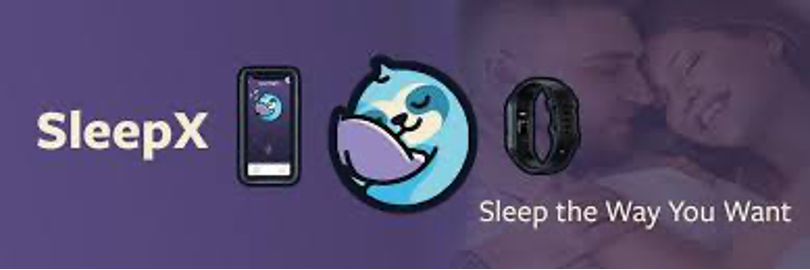SleepX, an AppYea (OTCQB: APYP) subsidiary, is a health-tech company focused on developing accurate wearable monitoring solutions to treat sleep apnea and snoring and fundamentally improve quality of life.
The global intelligent sleep tracking products market will demonstrate revenue of USD 11234.55 million by 2028 and grow with a CAGR of 17.50% during 2020-2028; a surge in concern for sleep-related disorders underserved to drive the market growth. The Company’s measurement technology utilizes a technique that measures a range of physical parameters as a function of time to a level of accuracy previously unattainable.


The company’s technology is protected by patents to provide strong IP protection, one of the Company’s most important assets. Its technology, applications, and products, both in the medical and nonmedical fields, are protected by the laws of the United States and other jurisdictions worldwide.
How Does The Tech Work?
Fun Fact: Within 12 hours of going on Pre-sale, the DreamIt wristband sold out. I am willing to discount that, but there is a market for the tech which is not even close to satiated.
The DreamIT wristband tech turns the potential for OSA (Obstructive Sleep Apnea) over to the device. As it detects all the constituents, it measures those, delivers a subtle vibration, and forces the wearer to adjust sleep depth and breathing, mitigating snoring and OSA.
One of the past issues, mainly if one lives alone, is that it was difficult to know the seriousness or even if you were snoring. SleepX and DreamIT also deliver critical stats that show the effectiveness and work to adjust sleep patterns.
Here’s a brief video of the wrist device.
Obstructive sleep apnea increases the risk of13:
- Heart failure by 140%
- Stroke by 60%
- Coronary heart disease by 30%
Up to 83% of patients with type 2 diabetes suffer from unrecognized sleep apnea 14
ALS patients are more likely to have sleep apnea than the general population. 45.6% of ALS patients had more than five apneas or hypopneas per hour.15
There is a significant prevalence of psychiatric comorbid diagnoses 16 such as:
- 21.8% with depression
- 16.7% with anxiety
- 11.9% of PTSD
- 5.1% with psychosis
- 3.3% with bipolar disorders
As one who has, unfortunately, reaped most of the negative benefits of OSA for decades until detected, I can attest that technology makes life better and less drama-free, health-wise. I am well represented in the health statistics noted above. I would not wish it on anyone.
Without getting too far into the weeds, inflammation is becoming the basis for many diseases, and OSA could well be the canary in the coal mine. To reduce inflammation fast, limit your intake of sugar and processed foods. Perhaps more importantly, pursue exercise, stress-reducing behaviours, a good night’s sleep, and a diet full of colourful, anti-inflammatory foods.
Note the part that states a good night’s sleep. OSA does not promote anything near a good night’s sleep.
Bottom Line
The tech costs about $100 bucks. Even if you don’t know if you snore, it’s a low price to pay for the definitive answer as to if you snore, how badly and whether the tech works for you.
If not, keep the box and give it to a friend for Xmas. Or your spouse.
Some more salient points:
“In recent months, we have seen a massive entry of multinational companies into the rapidly growing field of sleep monitoring. The patent portfolio that Appyea holds constitutes a vital strategic asset.
SleepX signed an agreement with a hardware manufacturer of its DreamIT wristband. The first stock is expected to arrive during November. https://lnkd.in/d3hDBe6
AppYea has been approved for an up-listing to the OTCQB. Uplisting requires the company to become a quarterly reporter, increasing investor transparency. Will trade on the OTCQB exchange under its current symbol “APYP.” https://lnkd.in/d3hDBe6




